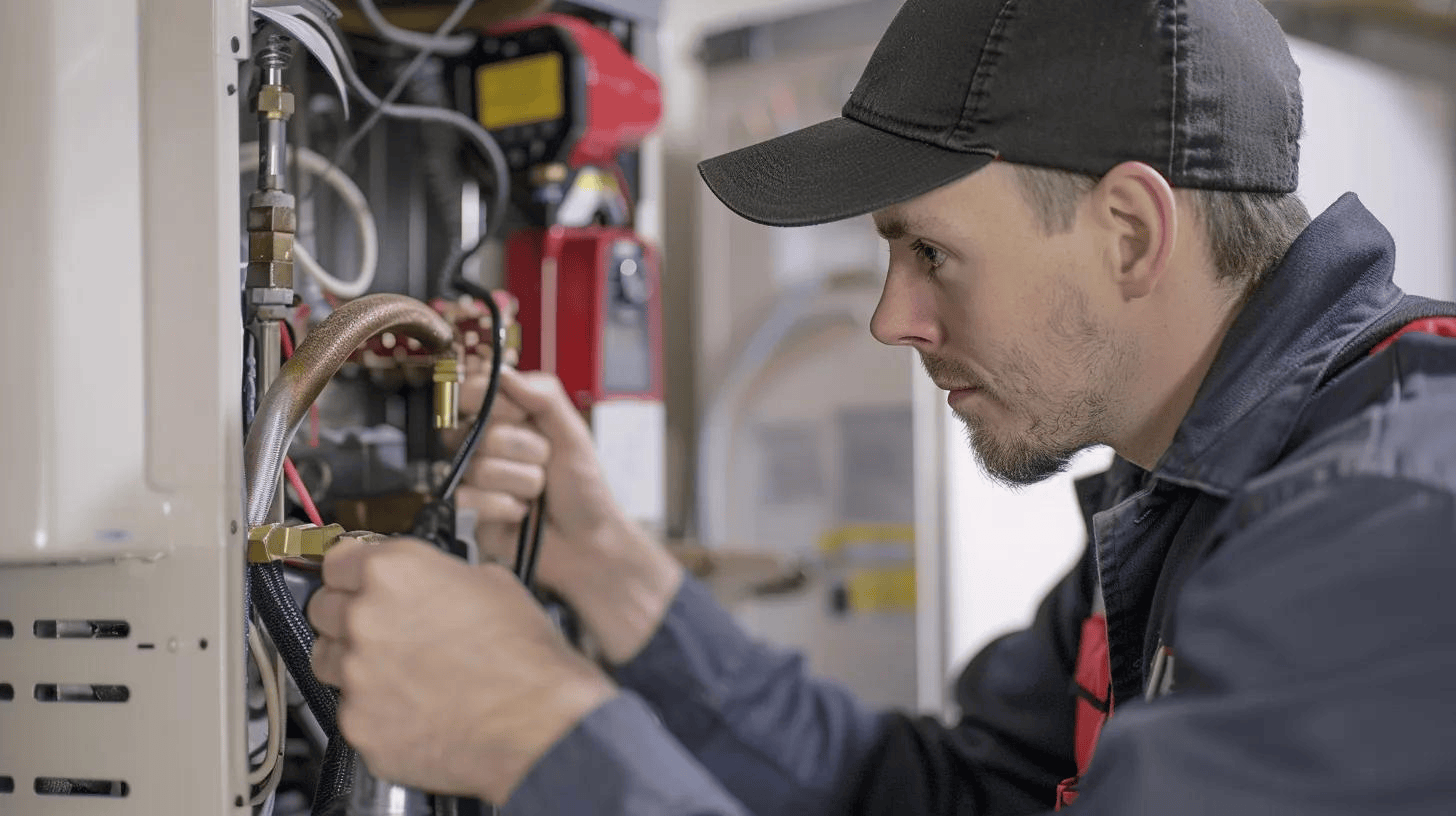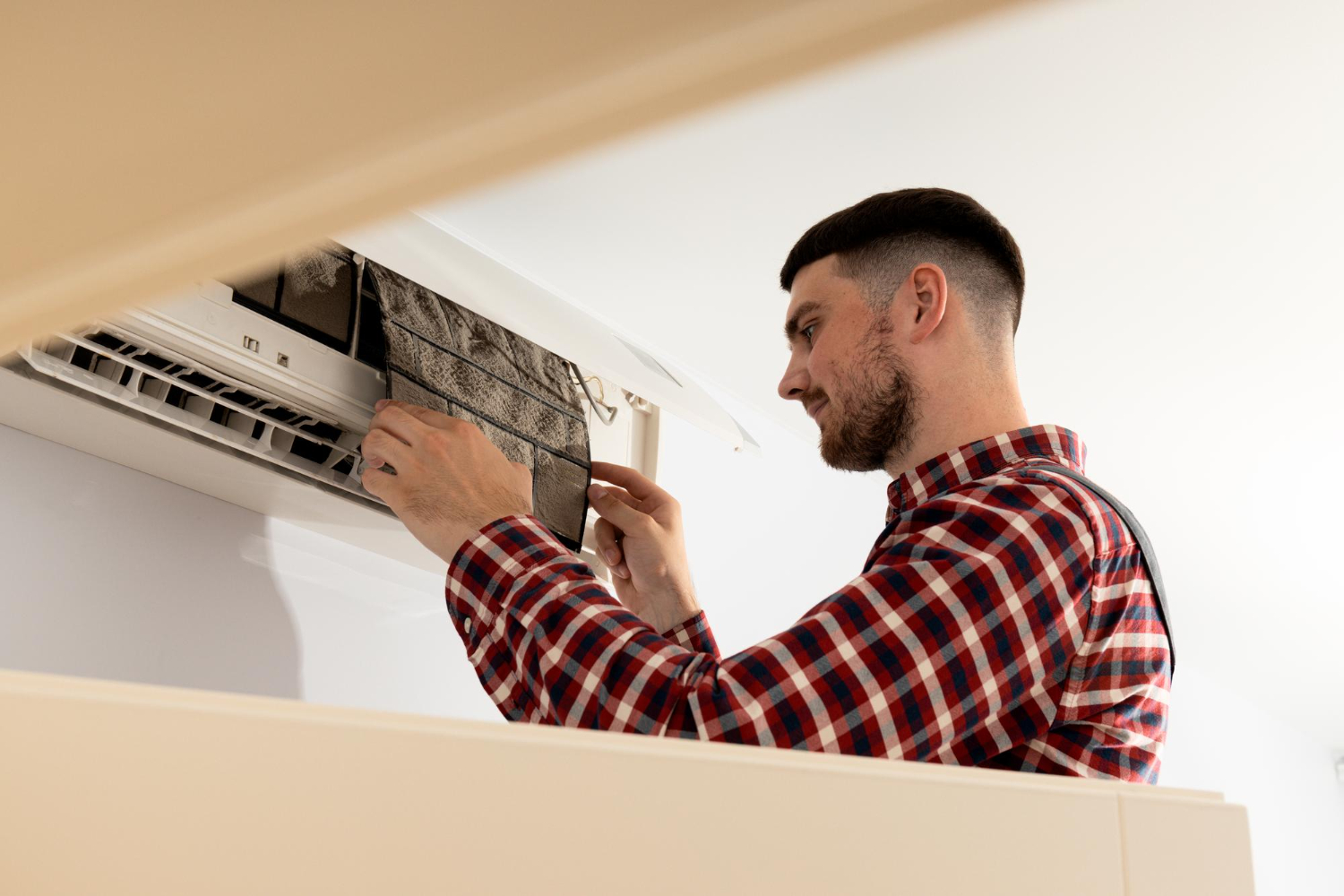Permits & Regulations for HVAC Installation in Paso Robles: A Homeowner's Guide
Undertaking a new HVAC installation or replacing an old system in your Paso Robles home is a significant project that brings improved comfort and efficiency. However, navigating the local permitting process can sometimes feel daunting. This guide is designed to demystify the necessary permits and regulations, ensuring your HVAC project proceeds smoothly, legally, and safely.
Why Are HVAC Permits Required in Paso Robles?
Permits aren't just bureaucratic hurdles; they are essential for protecting you, your home, and your investment. The City of Paso Robles, like other municipalities, requires permits for significant HVAC work for several key reasons:
- Ensuring Safety: HVAC systems involve electrical components, gas lines, and refrigerants. Permits and subsequent inspections ensure that the installation adheres to strict safety codes, reducing risks like fire, carbon monoxide leaks, or electrical hazards.
- Verifying Code Compliance: Permits ensure your installation meets current local building codes and California state energy efficiency standards (like those outlined in the state's energy code). This guarantees your system operates correctly and efficiently.
- Protecting Home Value: Unpermitted work can create significant headaches when you decide to sell your home. Potential buyers will likely discover the lack of permits during inspection, leading to complications, required fixes, or devaluation. Permitted work provides documentation that the installation was done correctly.
- Legal Requirement: It's simply the law. Installing or significantly altering an HVAC system without the required permits can lead to fines, penalties, and the requirement to expose or redo work for inspection later.
When Do You Need an HVAC Permit in Paso Robles?
In Paso Robles, you generally need a permit for any significant work on your heating or cooling system. This typically includes:
- Installing a brand new HVAC system (furnace, air conditioner, heat pump).
- Replacing an existing full system (e.g., replacing both the furnace and AC unit).
- Replacing a major component (e.g., replacing the AC condenser and evaporator coil).
- Making significant alterations to your ductwork system.
- Installing ductless mini-split systems.
Minor repairs, routine maintenance, or simply replacing a thermostat usually do not require a permit. If you are unsure whether your specific project requires a permit, it's always best to check directly with the City of Paso Robles Building Department.
The Paso Robles HVAC Permit Process for Homeowners
Navigating the permit process as a homeowner can be straightforward, especially when you understand the steps involved.
- Determine if a Permit is Needed: As mentioned above, assess your project scope. When in doubt, consult the City or a licensed HVAC professional.
- Deciding Who Pulls the Permit: If you hire a licensed HVAC contractor (which is highly recommended), they are legally responsible for pulling the necessary permits and scheduling inspections. If you plan to do the work yourself as an owner-builder, you must obtain the permit. Be aware that owner-builder permits come with significant responsibilities and liabilities.
- Preparing Documentation: You will typically need to provide basic information about your project, including the location of the equipment, and specifications of the new system.
- Applying via PasoPermits.com: The City of Paso Robles uses an online portal called PasoPermits for permit applications. HVAC permits usually fall under the 'MPE' (Mechanical, Plumbing, Electrical) category. You will create an account and submit your application electronically. The city offers helpful 'How To Videos' covering the MPE application process.
- Plan Review & Corrections: After submission, the city's Building Department will review your application to ensure it meets code requirements. If there are any issues, you'll receive a notification with necessary corrections, which you can often address and resubmit online. The city provides a video guide on viewing corrections.
- Paying Fees: Once the application is approved, you will be notified of the permit fees, which can be paid online through the PasoPermits portal. A video guide on paying fees is also available.
- Scheduling Inspections: Your project will require inspections at various stages, including a final inspection upon completion. These inspections verify that the work aligns with the approved plans and meets code. You can schedule inspections online via the city's system.
- Final Approval: After successful final inspection, your project receives final approval, closing out the permit.
Understanding Key Regulations & Inspections
Beyond local building codes, state regulations play a significant role. California's energy code sets minimum efficiency standards (like SEER ratings for AC units) and requires specific tests, often referred to as HERS (Home Energy Rating System) testing, for certain HVAC projects (e.g., duct sealing, refrigerant charge verification). These requirements ensure systems are installed and performing optimally, saving energy.
During inspections, the city inspector will verify various aspects of the installation, such as:
- Correct equipment installation and location.
- Proper electrical and gas connections.
- Safe venting for combustion appliances (furnaces).
- Proper ductwork connections and sealing.
- Thermostat wiring and system functionality.
- Documentation of required HERS tests (if applicable).
Consequences of Skipping the Permit
Ignoring the permit process can lead to costly and stressful situations:
- Fines and Penalties: The City of Paso Robles can issue citations and fines for unpermitted work.
- Required Rework: You may be forced to uncover walls, ceilings, or crawl spaces to allow inspectors to view and approve the work, leading to additional costs and delays.
- Insurance Issues: If a fire or other damage occurs and it's related to unpermitted HVAC work, your insurance claim could be denied.
- Resale Problems: Failure to disclose unpermitted work during a home sale can lead to legal issues, or the buyer may demand significant concessions or require permits and inspections before closing.
Hiring a Licensed HVAC Contractor
One of the biggest advantages of hiring a licensed, reputable HVAC contractor in Paso Robles is that they handle the entire permit process for you. They are familiar with local codes, state regulations, and the PasoPermits system. This ensures the application is filled out correctly, necessary documentation is provided, and inspections are scheduled appropriately, saving you time, stress, and potential errors. Furthermore, licensed contractors carry insurance and stand behind their work, offering peace of mind.
Contacting the City of Paso Robles Building Department
If you have specific questions about your project or the permit process, the City of Paso Robles Building Department is your best resource. You can find their contact information on the city's website, typically within the Community Development or Building division pages.
Obtaining the correct permits for your HVAC installation in Paso Robles is a crucial step that ensures the safety, efficiency, and legality of your project. While the process involves several steps, utilizing the city's online resources like PasoPermits.com and understanding the requirements for documentation and inspections can make it manageable. For most homeowners, partnering with a licensed HVAC professional simplifies this process significantly, allowing you to focus on enjoying your comfortable, newly installed system with confidence that it meets all local and state standards.
FAQs
Q: How long does it take to get an HVAC permit in Paso Robles?
A: The timeline can vary depending on the complexity of the project and the current volume of applications at the City's Building Department. Using the online PasoPermits system is generally the most efficient way to apply and track your application status.
Q: Can I apply for the permit myself if I hire a contractor?
A: While technically possible, it is standard practice and often required for the licensed contractor performing the work to pull the permit. This ensures accountability and leverages their familiarity with the codes and process. It's strongly recommended to have your contractor handle the permitting.
Q: What happens if an inspector finds an issue during the inspection?
A: The inspector will document the deficiency, and you (or your contractor) will be notified. You will need to correct the issue and schedule a re-inspection to ensure the work now meets code requirements before the permit can be finalized.
Q: Are there different permit requirements for different types of systems (e.g., furnace vs. heat pump)?
A: While the core MPE permit process is similar, the specific details reviewed during the plan check and inspection will vary based on the system type, including considerations for fuel source (gas, electric), refrigerant handling, venting, and efficiency standards specific to that equipment.
Q: Do I need a permit to replace only my AC compressor or furnace blower motor?
A: Typically, replacing individual components like compressors or blower motors during a repair does not require a permit. Permits are generally needed for full system replacements or major alterations. However, it's always best to confirm with the City if you are unsure.


HVAC Financing Available!
Get 0% Financing for 12 Months with Deferred Interest! Enjoy no payments and no interest on select plans.





Customer Testimonials







